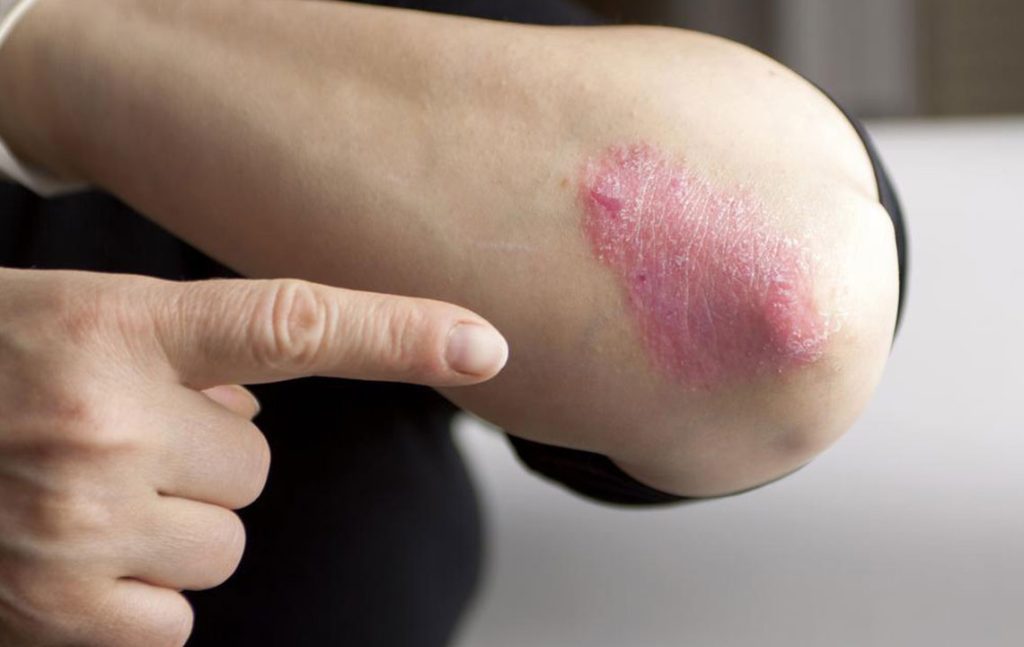Managing Plaque Psoriasis: Causes, Remedies, and Prevention Tips
Psoriasis is a chronic autoimmune disease that affects millions of people worldwide. The condition manifests itself in the form of raised, red, scaly patches on the skin, which can be itchy and painful. Plaque psoriasis is the most common form of psoriasis, accounting for about 80% of all cases. While the exact causes of plaque psoriasis are unknown, several factors are believed to contribute to the development of the condition. In this article, we will explore the causes of plaque psoriasis and discuss some remedies for managing the symptoms.
Causes of Plaque Psoriasis
- Genetics: Genetics is believed to play a significant role in the development of plaque psoriasis. Studies have shown that people with a family history of psoriasis are more likely to develop the condition than those without such a history. Certain genetic mutations have also been linked to the development of psoriasis.
- Immune System: Psoriasis is an autoimmune disease, which means that it results from an overactive immune system. In people with psoriasis, the immune system mistakenly attacks healthy skin cells, leading to the development of plaques.
- Triggers: Certain triggers can also exacerbate the symptoms of psoriasis. These triggers can include stress, injury to the skin, infections, and certain medications.

Remedies for Plaque Psoriasis
- Topical Treatments: Topical treatments are usually the first line of treatment for mild to moderate plaque psoriasis. These treatments include corticosteroids, vitamin D analogs, retinoids, and salicylic acid. Topical treatments can help to reduce inflammation, soothe the skin, and slow down the growth of skin cells.
- Phototherapy: Phototherapy involves exposing the skin to ultraviolet light, which can slow down the growth of skin cells and reduce inflammation. Phototherapy is usually administered in a doctor’s office or clinic and requires multiple treatments over several weeks.
- Systemic Treatments: Systemic treatments are medications that are taken orally or injected into the body. They are usually prescribed for moderate to severe plaque psoriasis that does not respond to topical treatments or phototherapy. Systemic treatments work by suppressing the immune system, reducing inflammation, and slowing down skin cell growth.
- Lifestyle Changes: Certain lifestyle changes can also help to manage the symptoms of psoriasis. These changes can include maintaining a healthy diet, exercising regularly, avoiding alcohol and tobacco, and reducing stress.
- Natural Remedies: Several natural remedies have been shown to be effective in managing the symptoms of psoriasis. These remedies include aloe vera, fish oil, turmeric, and tea tree oil. These remedies can help to reduce inflammation, soothe the skin, and promote healing.
Conclusion
Plaque psoriasis is a chronic autoimmune disease that can be challenging to manage. While the exact causes of psoriasis are unknown, several factors are believed to contribute to the development of the condition. Topical treatments, phototherapy, systemic treatments, lifestyle changes, and natural remedies can all help to manage the symptoms of psoriasis. It is important to talk to a healthcare professional before trying any new remedies, as some remedies may interact with conventional treatments or have side effects. With the right treatment plan, most people with plaque psoriasis can manage their symptoms and lead a fulfilling life.
Preventing Psoriasis Flare-Ups
While there is no cure for plaque psoriasis, there are several ways to prevent flare-ups and manage the symptoms. Here are some tips for preventing psoriasis flare-ups:
- Avoid Triggers: Identify and avoid triggers that can exacerbate the symptoms of psoriasis. Common triggers include stress, injury to the skin, infections, and certain medications.
- Moisturize: Keep your skin moisturized to prevent dryness and itching. Use a moisturizer that is specifically designed for psoriasis-prone skin, and apply it regularly.
- Sun Protection: Protect your skin from the sun’s harmful rays by wearing protective clothing and using a broad-spectrum sunscreen with an SPF of at least 30.
- Quit Smoking: Smoking can worsen psoriasis symptoms and increase the risk of other health problems. Quitting smoking can help to reduce the severity of psoriasis symptoms and improve overall health.
- Maintain a Healthy Weight: Obesity is a risk factor for psoriasis and can worsen symptoms. Maintaining a healthy weight through diet and exercise can help to reduce the severity of psoriasis symptoms.
Conclusion
Plaque psoriasis is a chronic autoimmune disease that affects millions of people worldwide. While the exact causes of psoriasis are unknown, genetics, immune system dysfunction, and triggers are believed to contribute to the development of the condition. Topical treatments, phototherapy, systemic treatments, lifestyle changes, and natural remedies can all help to manage the symptoms of psoriasis. It is important to talk to a healthcare professional before trying any new remedies, as some remedies may interact with conventional treatments or have side effects. With the right treatment plan and lifestyle changes, most people with plaque psoriasis can manage their symptoms and lead a fulfilling life.
